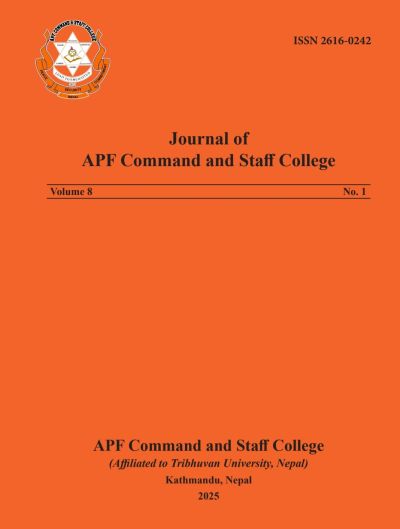Role of Ethics in Conflict Negotiation: A Narrative Review
DOI:
https://doi.org/10.3126/japfcsc.v8i1.77598Keywords:
Ethics, conflict, negotiation, sustainability, inclusion and justiceAbstract
Conflict is a pervasive feature of human interaction, emerging from unmet needs like security and recognition, often fueling disputes over resources and power. Negotiation is widely recognized as an effective tool for conflict resolution, yet its success varies, prompting scrutiny of its ethical dimensions. This paper aims to explore the role of ethics in conflict negotiation, seeking to understand how ethical principles enhance sustainability, justice, and inclusion in peace processes, and to propose a synthesis of realist and idealist approaches for enduring resolutions. Employing a qualitative, exploratory approach, the study conducts a narrative review of secondary sources, including scholarly articles and philosophical texts, accessed via desktop research. Thematic synthesis is to justify key ethical elements influencing negotiation outcomes. The realism offers a pragmatic negotiation framework, addressing procedural needs and power dynamics, but lacks depth for lasting peace without ethical grounding. Idealism, emphasizing moral values, complements this by fostering sustainability, justice, and inclusion as sufficient conditions. The ethical leadership mitigates conflict recurrence by utilizing the ethics in negotiation and decision making. A balanced integration of realist procedure and idealist ethics, guided by skilled negotiators, is essential for equitable, sustainable peace. This study provides a conceptual framework, underscoring ethics as a cornerstone of effective conflict negotiation, with implications for future research and practice.
Downloads
Downloads
Published
How to Cite
Issue
Section
License
Copyright (c) 2025 The Author

This work is licensed under a Creative Commons Attribution 4.0 International License.




